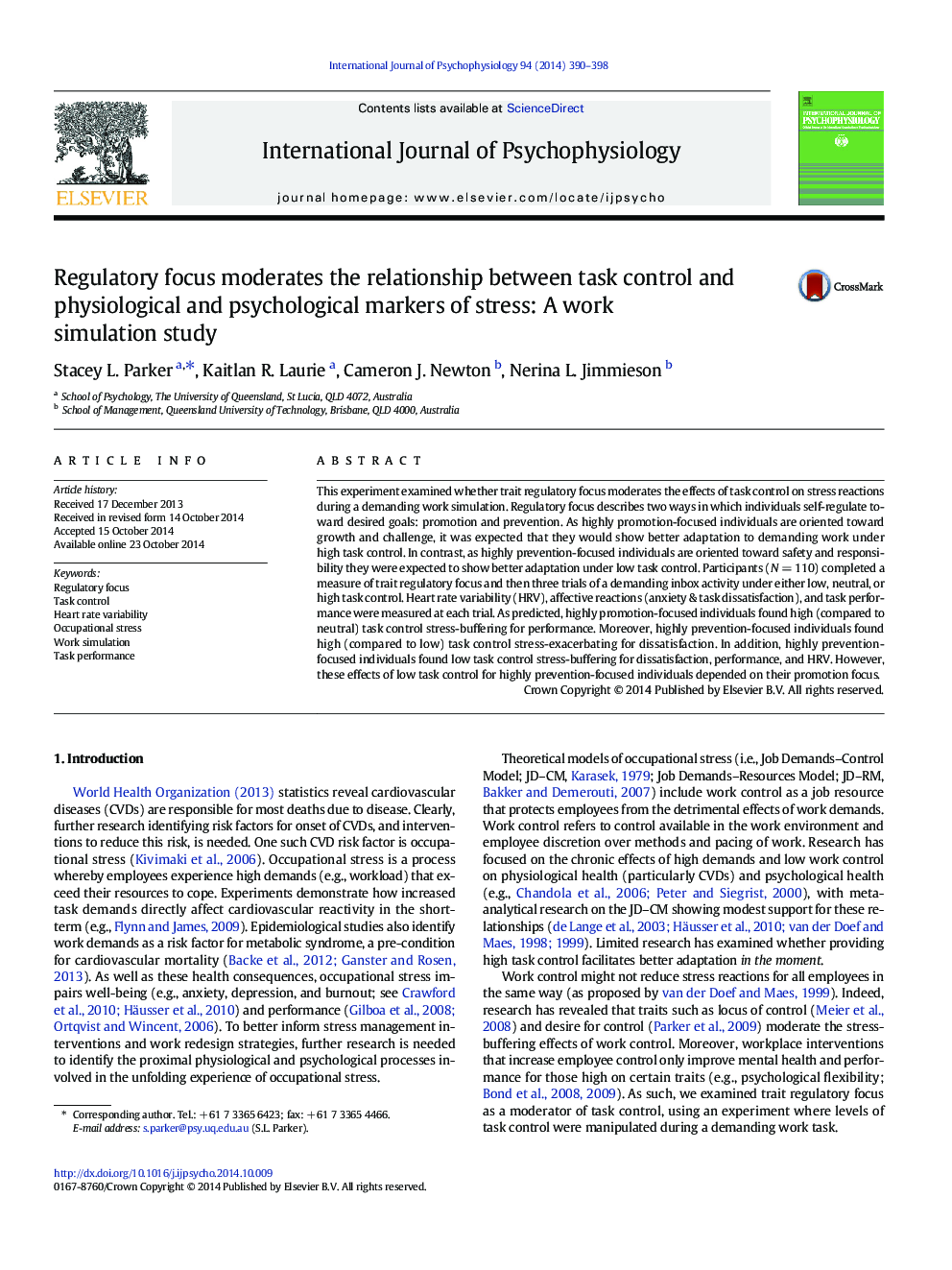| Article ID | Journal | Published Year | Pages | File Type |
|---|---|---|---|---|
| 930176 | International Journal of Psychophysiology | 2014 | 9 Pages |
•We examine whether regulatory focus moderates the effects of task control.•We found that high promotion focus and high control facilitate performance.•In contrast, high prevention focus and high control caused dissatisfaction.•Finally, high prevention focus and low control facilitate stress reduction.
This experiment examined whether trait regulatory focus moderates the effects of task control on stress reactions during a demanding work simulation. Regulatory focus describes two ways in which individuals self-regulate toward desired goals: promotion and prevention. As highly promotion-focused individuals are oriented toward growth and challenge, it was expected that they would show better adaptation to demanding work under high task control. In contrast, as highly prevention-focused individuals are oriented toward safety and responsibility they were expected to show better adaptation under low task control. Participants (N = 110) completed a measure of trait regulatory focus and then three trials of a demanding inbox activity under either low, neutral, or high task control. Heart rate variability (HRV), affective reactions (anxiety & task dissatisfaction), and task performance were measured at each trial. As predicted, highly promotion-focused individuals found high (compared to neutral) task control stress-buffering for performance. Moreover, highly prevention-focused individuals found high (compared to low) task control stress-exacerbating for dissatisfaction. In addition, highly prevention-focused individuals found low task control stress-buffering for dissatisfaction, performance, and HRV. However, these effects of low task control for highly prevention-focused individuals depended on their promotion focus.
